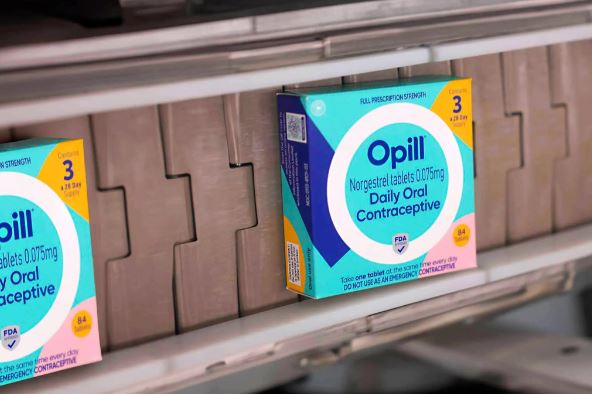In a landmark move, the Food and Drug Administration (FDA) approved the sale of Opill, an over-the-counter birth control medication. Opill, a progestin-only pill, was granted approval last year and is poised to become the most effective nonprescription birth control method available, surpassing condoms, spermicides, and other over-the-counter options.
Research indicates that Opill boasts a high efficacy rate of 93% in preventing pregnancy with typical use. Its approval signifies a significant advancement in reproductive health care, particularly for individuals facing barriers to obtaining prescription birth control, such as teenagers and young women. Lupe M. Rodriguez, the executive director of the National Latina Institute for Reproductive Justice, emphasized the importance of over-the-counter access in reducing obstacles like transportation, cost, and language barriers.
Opill’s approval is underpinned by its long-standing history of safety and efficacy, having been approved for prescription use fifty years ago. While certain medical conditions preclude its use, Opill is deemed safe for the majority of women, with minimal risks when used as directed. The move to make Opill available over the counter aligns with efforts to improve contraceptive accessibility, particularly following the Supreme Court’s decision to overturn the national right to abortion in 2022.
The decision to approve Opill faced minimal opposition, with widespread support from reproductive health specialists and advocacy groups. Notably, conservative groups that typically oppose measures aimed at expanding access to reproductive health care offered little resistance. However, some Catholic organizations and Students for Life Action voiced opposition.
Opill’s manufacturer, Perrigo, announced that the medication would be available for pre-order through select online retailers. A three-month supply will be sold for $49.99, with a six-month supply priced at $89.99. While Perrigo intends to offer a cost-assistance program for low-income and uninsured individuals, concerns remain about affordability for certain populations.
Maia Lopez, a 17-year-old member of the FreeThePill Youth Council, highlighted the importance of ensuring affordability, particularly for teenagers facing financial constraints. The Affordable Care Act mandates coverage of prescription contraception by health insurance plans, but coverage for over-the-counter methods varies by state. Democratic senators Patty Murray, Mazie Hirono, and Catherine Cortez Masto called for legislation to require insurers to cover over-the-counter birth control, emphasizing the need for continued efforts to enhance accessibility and affordability.
Opill’s availability marks a significant milestone in reproductive health care, offering individuals a convenient and effective contraceptive option without the need for a prescription. As discussions around contraceptive access and affordability continue, advocates remain committed to ensuring that all individuals have access to the contraception they need.

